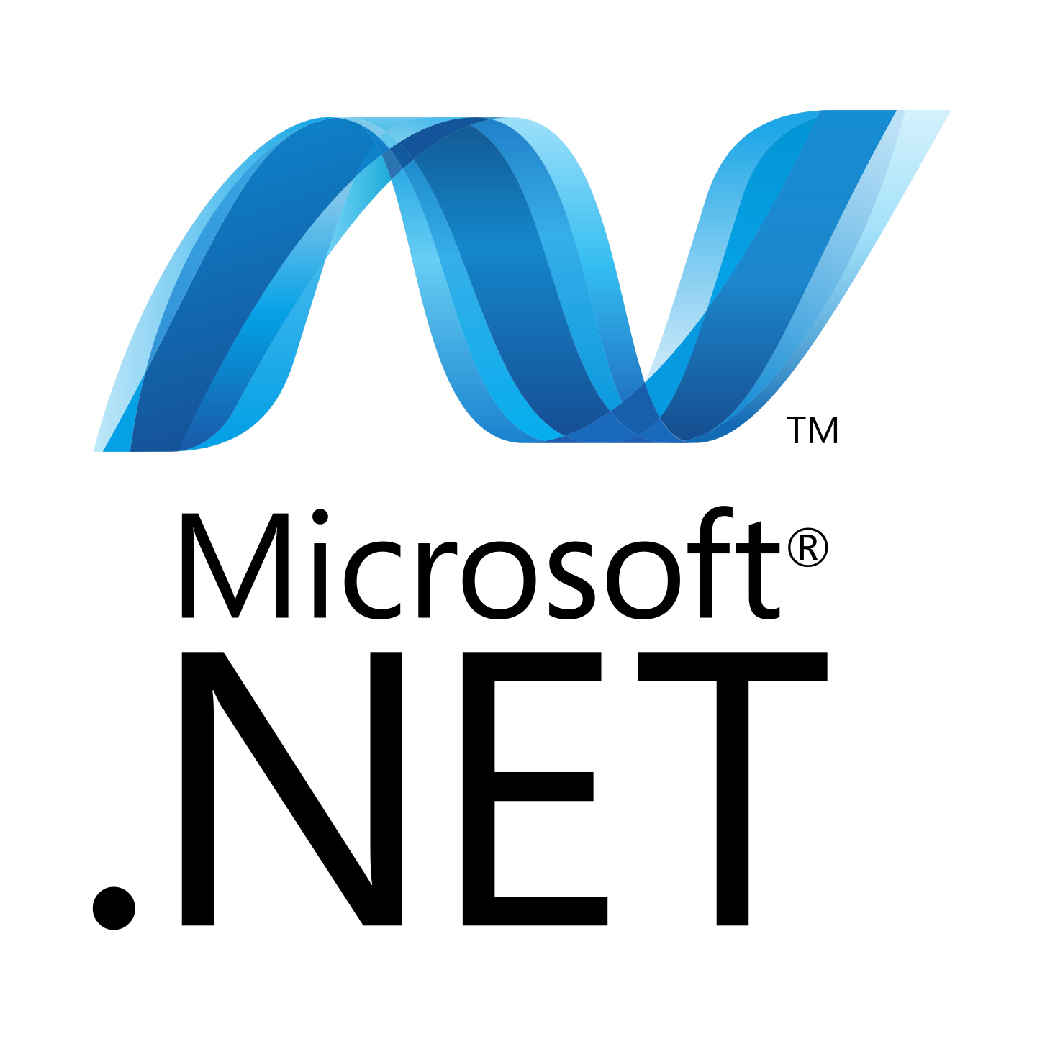Is .NET Dead? The Truth About the Future of the Microsoft Framework
.NET: Alive and Thriving! Unraveling the Truth About the Future of Microsoft’s Framework.

Everything you need to know about
Is .NET Dead?
The technology landscape is constantly evolving, and with each passing year, new programming languages, frameworks, and tools emerge, challenging the relevance of existing technologies. .NET, a popular framework developed by Microsoft, has been at the center of debates regarding its longevity and prospects. In this article, we delve into the question, “Is .NET dead?” and uncover the truth about the future of this versatile and widely used framework.
Understanding .NET:
Before exploring the future of .NET, let’s first understand what it is. .NET is a software framework developed by Microsoft to build and run applications on Windows environments. It offers a range of tools, libraries, and language support for various programming languages, including C#, Visual Basic, and F#. With .NET, developers can create web applications, desktop applications, cloud-based solutions, mobile apps, and more.
The Popularity and Legacy of .NET:
Since its initial release in 2002, .NET has gained significant popularity in software development. Its powerful features, cross-platform capabilities through .NET Core (now .NET 5), and seamless integration with Visual Studio, the popular Integrated Development Environment (IDE), have made it a favorite among developers.
The framework has powered countless enterprise applications, web services, and desktop software, cementing its legacy as a reliable and robust technology choice. Many organizations, especially those heavily invested in Microsoft technologies, continue to rely on .NET for their software development needs.
Our Executive Team

Common Industries we provide .NET Technologies:
Healthcare & Life Sciences
SaaS & Information Services
Manufacturing
Financial Services & FinTech
Retail & E-Commerce
Insurance
Logistics & Automotive
Travel & Hospitality
The Rise of .NET
Core and .NET 5:
In recent years, Microsoft made strategic moves to expand the reach of .NET beyond the Windows ecosystem. The introduction of .NET Core, an open-source, cross-platform version of .NET, marked a significant milestone. .NET Core offered developers the ability to build applications that could run not only on Windows but also on macOS and Linux, addressing one of the limitations of the original .NET Framework.
With the release of .NET 5 in November 2020, Microsoft merged .NET Core and the .NET Framework into a single, unified platform. This new version provided a suitable platform for developing applications across different operating systems, cloud platforms, and devices. .NET 5 further demonstrated Microsoft’s commitment. NET’s future and its ongoing relevance in the ever-changing tech landscape.
The Impact of Microsoft’s Strategy:
Microsoft’s strategic decisions, such as embracing open-source development, cloud computing, and cross-platform compatibility, have significantly impacted the adoption and relevance of. NET. These moves have expanded the framework’s appeal and opened up new possibilities for developers to build applications beyond the traditional Windows environment.
The .NET Community and Ecosystem:
A vibrant and active community of developers and contributors surrounds them. NET. This community plays a crucial role in keeping the framework alive and continuously improving it. The .NET ecosystem has grown significantly, with a rich set of libraries, frameworks, and tools that enhance productivity and accelerate development (1).
“Not only is it a versatile system, but it has a tremendous amount of community support.”
-Hacker.IO


Common Industries we provide .NET Technologies:

COST-EFFECTIVE DEVELOPERS
Our Software Developers and Engineers cost
on average $45 to $65 per hour

HIGHEST QUALITY DEDICATED TEAMS
Access to the TOP 1% of Nearshore Software Development resources in Latin America

TIME SENSITIVE DEVELOPMENT
Sonatafy’s Nearshore Talent Acquisition can place qualified Software Engineering teams in as quick as 2 weeks
.NET in the Cloud
and Web Development:
.NET in the Cloud and Web Development:
The cloud computing revolution has profoundly impacted the software industry, and .NET has successfully adapted to this new paradigm. With cloud-native development becoming increasingly popular, .NET provides developers with the tools and frameworks to build scalable, resilient, and cloud-ready applications (2).
“It is difficult to predict which technological trend will grow more in the future. But it is obvious that .NET will be here as it is the essential technology revolution and will become more popular in the coming years.”
– Medium
Moreover, NET’s capabilities in web development have remained relevant. ASP.NET, the web application framework within the .NET ecosystem, continues to be widely used for building robust and dynamic web applications.
The Future of .NET:
The future of .NET looks promising, thanks to Microsoft’s commitment to its ongoing development and improvement. With the unified .NET 5 platform, Microsoft has simplified the development process and reduced fragmentation within the .NET ecosystem. This unification ensures that .NET will remain a robust and viable choice for developers for years to come.
Additionally, Microsoft continues to invest in AI, machine learning, the Internet of Things (IoT), and other emerging technologies, and .NET is expected to play a significant role in these domains. As these .NET technologies evolve, it will continue to adapt and integrate with the latest innovations.
The Continued Demand for .NET Developers:
The demand for skilled .NET developers in the job market remains strong. Many companies that have built their applications on .NET continue to seek experienced developers to maintain and enhance their existing software. Moreover, as new projects arise and organizations embrace modernization efforts, the need for .NET developers will persist. In fact, if you want to know what it takes to be a .NET developer check this out: https://sonatafy.com/how-to-become-a-net-developer/

Interested In Working With Sonatafy?
Embracing .NET
for Modern Solutions:
Organizations that have invested in .NET over the years do not need to worry about their technology choice becoming obsolete. With the advancements made by Microsoft, migrating to .NET 5 or later versions is a viable and recommended option. Embracing .NET Core and .NET 5 opens up opportunities for modernizing applications, leveraging cloud capabilities, and reaching a wider audience.
The Resilience of .NET:
.NET is far from dead and thriving in the ever-evolving tech landscape. With strategic moves by Microsoft, the release of .NET Core and .NET 5, and its strong community support, .NET remains a versatile and relevant framework for building a wide range of applications. Whether it’s cloud-native development, web applications, enterprise solutions, or cutting-edge technologies like AI and
Is .NET Still Being Used Today? The Continued Adoption of Microsoft’s Framework
In the fast-paced world of technology, the longevity of a programming framework depends on its ability to adapt to new trends and meet the evolving needs of developers and businesses. .NET, developed by Microsoft, has demonstrated remarkable resilience and adaptability, which is why it is still widely used today.
Continued Adoption and Usage:
.NET continues to be actively used by many developers and organizations worldwide. Its widespread adoption can be attributed to several factors, including its mature ecosystem, cross-platform capabilities, strong performance, and support from Microsoft.
Presence in Enterprise Solutions:
.NET remains a core choice for enterprise-level applications. Many large organizations have invested heavily in .NET, building mission-critical software that forms the backbone of their operations. These applications often require continuous support and enhancements, keeping the demand for skilled .NET developers consistently high.
Web Development and Cloud-Native Applications:
.NET’s relevance in web development has also endured. ASP.NET, a component of the .NET framework, is preferred for building dynamic and feature-rich web applications. Additionally, with the rise of cloud computing, .NET has seamlessly transitioned into cloud-native development. Its compatibility with containerization technologies like Docker and Kubernetes has further bolstered its position in the cloud ecosystem.
Xamarin and Mobile Development:
Xamarin, an open-source mobile app development platform, has played a significant role. NET’s presence in the mobile app development domain. Xamarin allows developers to build cross-platform mobile applications using .NET, targeting Android and iOS platforms. This capability has been well-received by developers, enabling them to create efficient and consistent mobile experiences (3).
“Another important factor contributing to the demand for .NET is its ability to run on multiple platforms. This makes it ideal for mobile and web applications, which are becoming increasingly popular daily as people discover new technology methods.”
Integration with AI and Machine Learning:
Microsoft’s focus on artificial intelligence (AI) and machine learning (ML) has been included. NET. Integrating ML.NET, an open-source machine learning framework for .NET, allows developers to easily incorporate machine learning models into their .NET applications. This integration empowers developers to build intelligent applications that leverage data-driven insights.
Community Support and Open Source Contributions:
The .NET community has played a crucial role in maintaining and expanding the framework’s relevance. The active community support and Microsoft’s embrace of open-source development have led to a flourishing ecosystem of libraries, tools, and extensions. This community-driven growth ensures that .NET remains up-to-date with the latest technologies and trends.
Cross-Platform Capabilities:
The introduction of .NET Core (now .NET 5) marked a significant turning point. NET. With .NET Core, Microsoft introduced cross-platform capabilities, allowing developers to build applications that run on multiple operating systems, including Windows, macOS, and Linux. This breakthrough widened the scope of. NET’s applicability attracted developers from different backgrounds.
Cloud and IoT Applications:
The expansion of cloud computing and the Internet of Things (IoT) has opened up new opportunities. NET. Developers can build scalable cloud applications using services like Azure and AWS.NET’s ability to run on resource-constrained devices makes it a valuable choice for IoT solutions.
Compatibility with Legacy Code:
Many organizations have substantial investments in existing .NET applications. The ability of .NET 5 to coexist and interact with older .NET Framework applications allows businesses to modernize their systems incrementally. This compatibility makes transitioning to the unified .NET 5 platform a smooth and viable process.
A Flourishing Framework
.NET is undoubtedly not dead but remains a flourishing framework that continues to be used extensively in diverse domains. Its adaptability, cross-platform capabilities, integration with modern technologies like AI and cloud computing, and strong community support have all contributed to its ongoing relevance in the ever-changing tech landscape.
Organizations seeking stability, performance, and scalability for their applications still find .NET a compelling choice. Whether in enterprise solutions, web development, cloud-native applications, mobile development, or cutting-edge technologies like AI and ML, NET’s presence is alive and well, and its future remains bright.
%
TOP NEARSHORE TALENT
%
ATTRITION RATE
%
ENGLISH PROFICIENCY
RESOURCES DEPLOYED
One of the most frequent question,
What Is .NET?
.NET is a software framework developed by Microsoft that provides a comprehensive and versatile platform for building and running applications on Windows environments. It offers tools, libraries, and runtime components that enable developers to create various applications, including web applications, desktop software, cloud-based solutions, and mobile apps. The framework supports multiple programming languages, with C#, Visual Basic, and F# used for .NET development.
What Can You Gain From .NET?
Choosing .NET as a development platform can offer several benefits, including:
- Versatility:.NET allows developers to create applications for various domains, making it suitable for enterprise solutions, web development, cloud-native applications, and mobile development.
- Cross-platform Capabilities:With the introduction of .NET Core (now .NET 5), .NET became cross-platform, allowing developers to build applications that run on Windows, macOS, and Linux.
- Strong Ecosystem:.NET has a robust ecosystem with a wide range of libraries, frameworks, and tools that enhance productivity and accelerate development.
- Community Support:The .NET community is active and vibrant, providing valuable resources, support, and contributions to the framework’s growth.
- Integration with Microsoft Technologies:For organizations heavily invested in Microsoft technologies, .NET offers seamless integration with other Microsoft products, such as Visual Studio and Azure.
A Brief History of the .NET Framework
The .NET Framework was first released by Microsoft in 2002. Over the years, it gained popularity and became a dominant force in the software development industry. It powered countless enterprise applications, web services, and desktop software.
With the rapid evolution of technology and the need for cross-platform compatibility, Microsoft introduced .NET Core in 2016. .NET Core provided a more lightweight and modular framework supporting cross-platform development. In November 2020, .NET Core was merged with the traditional .NET Framework to create .NET 5, unifying the platform and simplifying the development process.
How Does .NET Work Exactly?
.NET applications are written in high-level languages such as C# or Visual Basic and compiled into an intermediate language called Common Intermediate Language (CIL) or IL. This IL is executed by the Common Language Runtime (CLR), a component of the .NET runtime. The CLR is responsible for managing memory, handling exceptions, and providing a range of services to the application during runtime.
The .NET Framework also includes a vast class library called the Framework Class Library (FCL). It provides a collection of reusable classes, types, and functions that developers can use in their applications.
Why Is The .NET Framework Becoming Obsolete?
The statement that the .NET Framework is becoming obsolete might be misleading. While .NET Core (now .NET 5) has taken center stage and is the recommended platform for new development, the traditional .NET Framework is still supported and widely used in existing applications.
However, Microsoft has shifted its focus towards .NET 5 and beyond, and future enhancements and improvements will likely be focused on this unified platform. As a result, developers are encouraged to transition their existing applications to .NET 5 to take advantage of the latest features and cross-platform capabilities.
What’s Next for The .NET Framework?
As mentioned earlier, the future of the .NET Framework lies in the unified platform, which is .NET 5 and later versions. Microsoft’s development efforts are expected to be concentrated on enhancing and expanding this unified platform rather than making significant updates to the traditional .NET Framework.
Is .NET Framework Dead?
While the traditional .NET Framework is not being actively developed with new features, it is not technically “dead.” Many existing applications still rely on the .NET Framework, and Microsoft continues to provide support and updates for this framework.
However, Microsoft recommends that developers and organizations transition their applications to .NET 5 and later versions to take advantage of the unified platform’s benefits, including cross-platform support and performance improvements.
What Is the Best Alternative to .NET Framework?
The best alternative to the .NET Framework is .NET 5 and later versions. As Microsoft’s recommended platform for new development, .NET 5 offers all the capabilities of the traditional .NET Framework, along with cross-platform support, performance enhancements, and the latest features and improvements.
Why Delphi Is the Best Alternative to .NET Framework?
Delphi, a programming language and integrated development environment (IDE) from Embarcadero Technologies, is another alternative to the .NET Framework. Delphi is known for its ease of use, rapid development capabilities, and ability to build native applications for Windows, macOS, iOS, and Android platforms.
For developers who prefer a native development approach and need to target multiple platforms, Delphi can be a compelling alternative. NET.
What Is ASP.NET?
ASP.NET is a web application framework within the .NET ecosystem. It allows developers to build dynamic and interactive web applications, web services, and APIs using languages such as C# or Visual Basic. ASP.NET provides powerful features for web development, such as model-view-controller (MVC) architecture, Razor syntax, and built-in support for security and authentication.
An Overview of .NET Statistics
As of this writing, .NET continues to be a widely used and popular framework. It ranks among the top programming frameworks according to various programming language popularity indexes. The unified .NET 5 platform has seen rapid adoption, and the .NET community remains active and vibrant, contributing to the framework’s growth and development.
.NET is far from becoming obsolete; it remains a thriving and versatile framework with a promising future. Developers and organizations are encouraged to embrace .NET 5 and take advantage of its cross-platform capabilities, performance improvements, and extensive ecosystem of libraries and tools. As technology evolves, .NET will likely continue to adapt and remain relevant in the dynamic world of software development.
.NET Development Company
Awards & Recognitions
Helping take our clients’ software development businesses to the next level has been quite an experience, and we are not slowing down any time soon. Providing a memorable experience and far surpassing our customers’ software development and solutions goals is one of the most rewarding experiences of our .NET development company to date.
We’re ready to start helping your company grow with our industry-leading custom software development solution, are you?

Earning Trust & Loyalty for our Software Development Services
Our executive team proudly provides complete software development solutions in the healthcare, SaaS, Manufacturing, and FinTech fields from deployment to completion.
Our client-centric software development solutions have made us the healthcare app development provider of choice for clients such as Akido Labs, Datacubed Health, Sema Technologies, and Semantic AI, among others. With thousands of software development engineers deployed to date, clients love our personalized high-touch approach.
With high-quality delivery web development services and strong customer support and management, we give you the ability to focus on business decisions rather than software development issues.
Sonatafy Technology services can dramatically
improve the .NET Technologies.
Our Software Development Clients Have Spoken.

“We increased our productivity and quality by extending our team with Sonatafy resources. They are part of our ‘family’. Their passion, dedication, experience, and wisdom has been nothing short of impressive.”

“We have been using Sonatafy for software team augmentation. Their vetting process is extremely through and has saved us a huge amount of time. All of the candidates presented have been outstanding and have fit into our team perfectly.”

“The Sonatafy team consists of members who are dedicated, personable, and attentive. They will search tirelessly to match the right talent to meet your skills and budgetary requirements. Regardless of your situation, you cannot go wrong with Sonatafy.”

“The Sonatafy team has continually impressed us with the quality of their engineers — we have found excellent engineering leaders in their contractors who have helped tremendously. They really are an integral part of our team, and we’re very thankful for Sonatafy’s professional leadership in this space. I heartily recommend them to augment anyone’s teams or projects.”

“At IMAIGE Analytics, we are driven by purpose and outcomes. Sonatafy has been the exact type of partner we need to help us deliver on both. They’ve found solutions specific to our purpose and needs, their resources have contributed like long time team members from day one and they seem dedicated to progressively better outcomes from the start. Thanks to the team and to Steve for taking the time to make our business better!”

“The entire team at Sonatafy greatly surpassed our expectations. We require very specific skill sets and the team did an incredible job of screening and selecting top – notch candidates. Sonatafy’s attention to detail, professionalism, open communication, and collaboration with us ensured that we found highly skilled talent that fit seamlessly into our company’s culture. I can’t recommend them strongly enough.”

“Sonatafy makes it easy to find great and professional talent, with their help we have been able to solidify our team. Their process and communication is a refresher and a weight off our shoulders.”

I’ve used Sonatafy Technologies for the last 5 + years at several of my companies both small and large, in a staff augmentation capacity. I have been consistently impressed with the high – quality of technical skills as well as the team member’s high level of engagement and dedication to my projects. I’ve always considered my dedicated Sonatafy resources as members of my team , and their contributions and performance has been excellent. The combination of high performance and afford ability has been an outstanding benefit , and I would highly recommend using Sonatafy Technologies as your near shore technology partner.
Is .NET Development still
Used Today Projects?
Yes, .NET is still widely used today. The introduction of .NET Core (now .NET 5) has expanded its reach and made it even more relevant. Many organizations continue to rely on .NET for their software development needs, and the framework remains a popular choice for building a wide range of applications, including enterprise solutions, web applications, mobile apps, cloud-native applications, and more.
Why is .NET outdated?
It’s important to clarify that while the traditional .NET Framework may be considered outdated for some use cases, it is not entirely obsolete. The .NET Framework was developed primarily for Windows environments and lacks some features now available in .NET 5 and later versions, such as cross-platform support. This has led to the shift in focus towards the unified .NET 5 platform, which provides a more modern and cross-platform development experience.
However, the traditional .NET Framework is still supported and used in many existing applications, and Microsoft continues to provide updates and support for it.
Is .NET in demand in the future?
Yes, .NET is expected to remain in demand in the future. With the continued growth of cloud computing, the need for cross-platform solutions, and the adoption of modern technologies like AI and machine learning, NET’s versatility and adaptability will make it a relevant choice for developers and organizations (4).
“The tech world is constantly evolving, but .NET has been Microsoft’s primary developer platform since 2000, and it continues to thrive.”
– Educative
The unified .NET 5 platform, with its cross-platform capabilities, performance improvements, and feature enhancements, ensures that .NET will continue to be a sought-after framework for building modern applications.
Is Microsoft ending .NET Framework?
While Microsoft is not entirely ending the .NET Framework, it is shifting its focus towards the unified .NET 5 platform. .NET Core (now .NET 5) was developed as the next-generation platform to address the limitations of the traditional .NET Framework, such as cross-platform support and modularity.
Microsoft has recommended that developers transition their existing applications to .NET 5 and later versions to take advantage of the latest features and improvements. The traditional .NET Framework will continue to be supported, but future development efforts will be concentrated on the unified platform.
References:
- Not only is it a versatile system, but it has a tremendous amount of community support. – Hacker.IO Quote
https://hackr.io/blog/what-is-net - It is difficult to predict which technological trend will grow more in the future. But it is obvious that .NET will be here as it is the essential technology revolution and will become more popular in the coming years. – Medium Quote
https://sumatosoft.medium.com/top-9-net-trends-to-dominate-in-2023-797b01a986cc - Another important factor contributing to the demand for .NET is its ability to run on multiple platforms. This makes it ideal for mobile and web applications, which are becoming increasingly popular daily as people discover new technology methods. – LinkedIn Quote
https://www.linkedin.com/pulse/reasons-why-net-framework-most-demanded-2023-/ - The tech world is constantly evolving, but .NET has been Microsoft’s primary developer platform since 2000, and it continues to thrive. – Educative Quote
https://www.educative.io/blog/c-sharp-dot-net-relevance









